Takeaways from COVID-19
It’s been three years since the COVID-19 pandemic nearly brought the world to a standstill. So far in 2023, we’re all gratefully operating at pre-COVID normalcy, with much of the globe returning to business as usual. But this disease is not going anywhere, and the lessons we all learned from it will remain in the background.
Though the initial panic is behind us, we know we still must protect and prepare ourselves accordingly. And at Horizon, we’ve seen that the ripple effect of COVID’s impact may linger in the logistics industry for a long time. Here are some of the things we observed and learned from the experience, and how we’ll use them to take care of your fleets this year and into the future.
Changes Brought About by COVID
Shifts in Shipping
“For a while,” says Horizon’s Chief Commercial Officer Josh Roman, “COVID removed long marine routings. Instead shipments were brought to the East Coast and put on a train, in order to move more containers.” Because of the crisis, ships were also running at a slower speed to conserve fuel, which further impacted delivery times. This meant we had to extend timelines and anticipate longer delays, in order to get things where they needed to be, and when.
“Ships had less sailings on the water overall,” Director of Marine Logistics Rosemarie Susino expands. “It was harder to get bookings. Carriers were trying to co-load with each other. Even though there was less cargo moving it was still harder to get on a ship. We just had to adjust to all of that and consolidate smartly.”
Even air freight was affected. “Whole airports were debilitated. And any kind of aviation shutdown impacted the ability to move things,” Roman elaborates. “There was more demand for cargo, but less supply.”
Since that time, we’re now seeing a shift in what’s sent where, and when. “People are more focused on leisure and travel: on having more experiences rather than stuff,” Roman explains. “They’re spending money differently, which will continue to impact the supply chain. And we’re meeting the demands of all of that.”
Elevated Expenses
“During COVID and in the immediate aftermath,” explains Susino, “freight rates went through the roof.” Because clients were understandably seeking alternate pricing to maximize their budgets, more work was required on Horizon’s part,. “Things got a little more intense,” Susino admits, “and is part of why things got expensive.”
As has been our practice for over fifty years — even in more desirable circumstances — at Horizon we did whatever it took to find cost-conserving options in this volatile pricing environment. We pursued the best options for protecting client budgets, while simultaneously making sure their ships had what they needed to keep sailing through uncertain seas.
Shutdowns to Circumvent
COVID gave us an even fuller understanding of how we are all connected. When one area shuts down in order to keep citizens safe, everyone is impacted, regardless of how we may respond on our own shores. For example, “China is a huge supplier of everything,” Susino reminds us, “and they shut down totally because of COVID. Most companies there are still operating on a hybrid work force, even today. So we adjusted to that. We know as a result there’s less capacity there, but we handle it.”
“China was the hardest,” Senior Routing Manager Bridget Aglio confirms. “Our freight was locked in their warehouses. There was nothing we could do to get it out. And we had to be understanding. India also had curfews and could only operate during certain times of the day. Noon to 4 PM and that was it. But we made adjustments and found a way.”
“When it comes to a global community,” says Steve Leondis, Horizon Air Freight’s CEO, “you have to put yourself in everyone’s shoes. You have to see things from their perspective. And then work from a place of understanding and trust to get things done.”
One thing we know and continue to know: clear, consistent communication is paramount in these conditions.
Our Takeaway: Client Connection Remains the Core
“Long-term, COVID has changed the way people think about work, logistics, and the importance of personal touch,” acknowledges Roman. “Video meetings, for example, used to be an internal tool only. But now they are the regular. We prefer to be in person, but having a comfortable virtual option widens the opportunity to meet clients whom we’ve never met. We have better relationships with them thanks to this tool.”
Now that things are normalizing, however, we’re even more thankful for the connection in-person meetings bring. “We’re getting out there again,” Roman says. “We’re visiting our vendors, clients, and ports personally. Virtual is great, but what’s even better is getting the opportunity to be even more hands on than we used to be, especially because we’ve been reminded how precious that is.”
“There’s something about marine that’s personal and that won’t ever go away,” he continues. “There’s too much trust involved. When it comes to international shipments, everything is time-sensitive. That will endure. So go back out there and meet the people you serve where they are, in order to gain a better understanding of what they’ll need, and why.”
These client relationships and the trust we’ve been given and work to preserve every day, are what helped us all keep going even during the worst moments of the pandemic.
“We never really stopped when COVID started,” says Susino. “We did have a period when we had to work from home, but comparatively that was for a short time. Everyone is equipped to do this. We can manage in situations like this. Ultimately, the business never stopped.”
And we won’t stop. Our values — the bedrock of over fifty years of service to the marine logistics industry — refuse to let us. No matter what happens in the future, Horizon Air Freight will be there for you and your fleets, delivering what you need, where you are, and when you need it. If you’re eager to renew an old relationship with us, or build a new one for the future (whether in person or virtually) reach out to our team today.




















